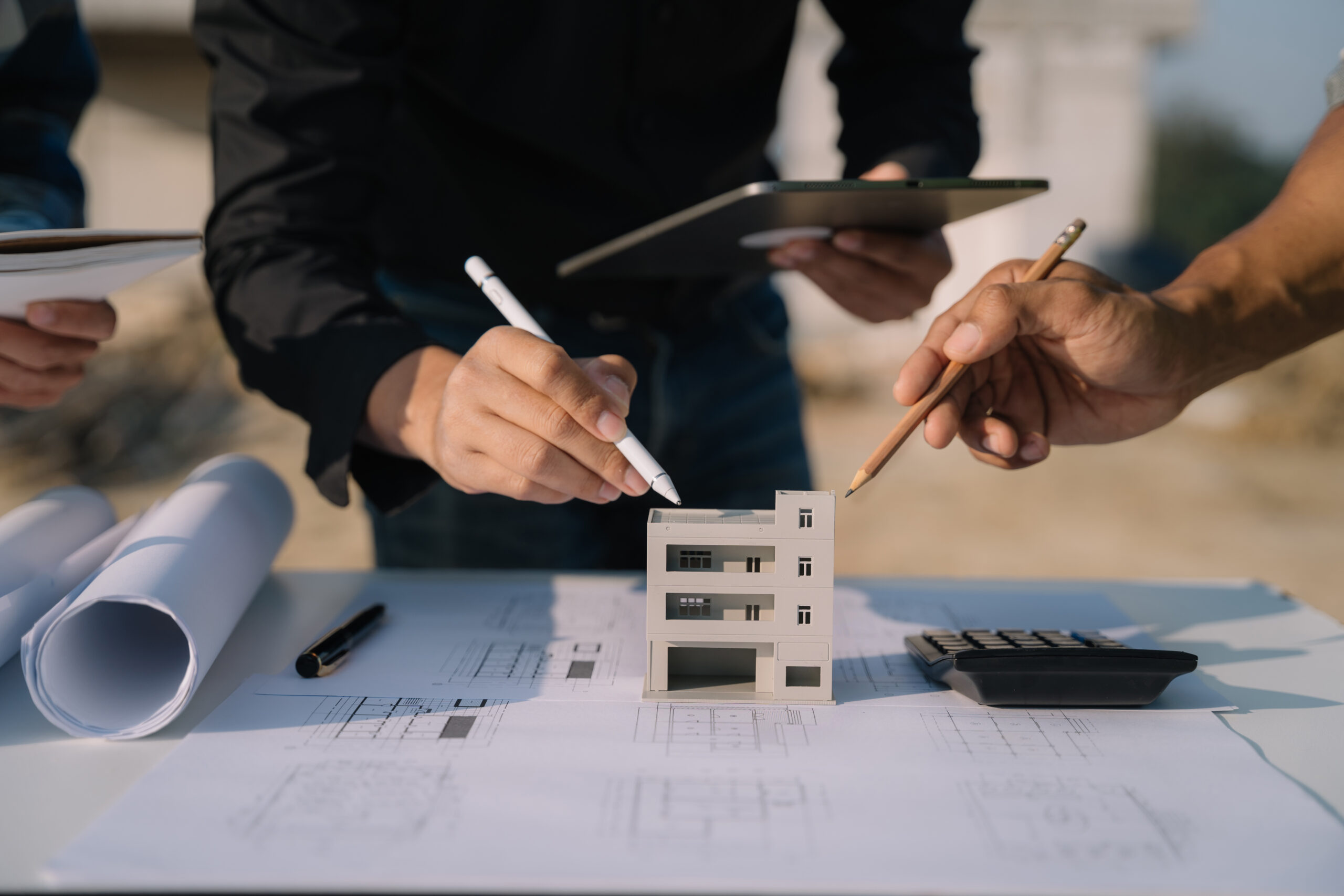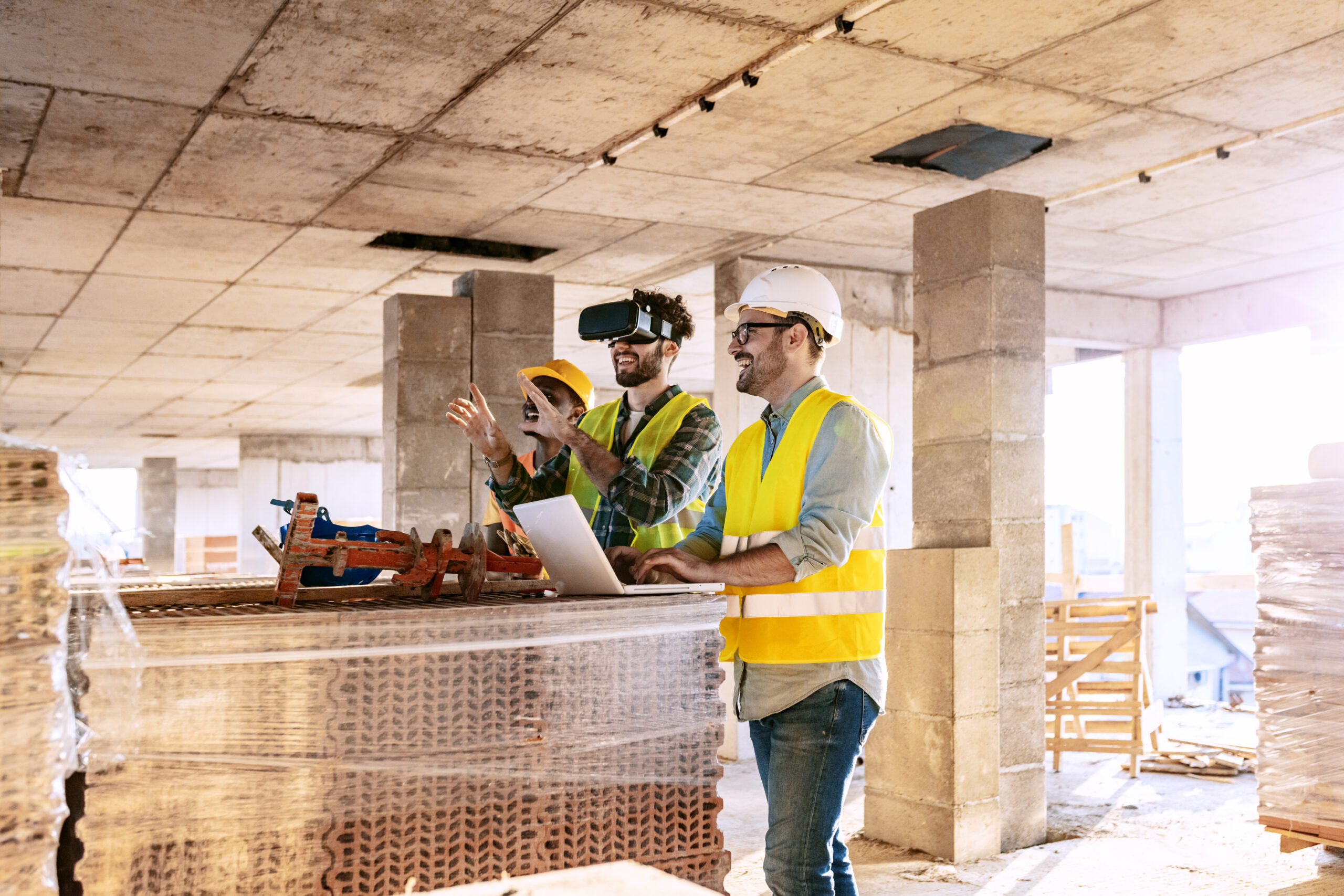What do commercial architects do?
The purpose of commercial architecture is to construct and develop buildings for commercial use. The commercial architect acts as an advisor and designer in order to offer complete support to businesses at every stage of their project, whether it is a project of expansion, development, construction or modification of a building.
In this sense, the role of a commercial architect is to develop and implement strategies that will allow the company’s brand image to be properly conveyed, to design plans, to coordinate the activities of the various professionals involved, to follow up on the project and eventually to stimulate sales and the company’s performance.
What is a commercial architect?
A commercial architect is a licensed professional who designs and implements buildings and structures for commercial and non-residential use, such as retail outlets, offices, factories, shopping centers, hospitals, hotels, and sports or recreation facilities.
Given their generalist training, commercial architects take into account various aspects of varying degrees of complexity (comfort, energy savings, ease of maintenance, space optimization, safety regulations, building codes and functionalities, city regulations, construction costs, etc.) in order to design custom projects that meet their clients’ requirements, budget and needs. They coordinate the work of various stakeholders to bring the vision established with the client to life.
The responsibilities of the commercial architect fall into 4 main categories:
- Programming: When a commercial architect receives a mandate, he begins by analyzing his client’s needs as well as various factors related to site access, location, existing regulations and energy performance requirements. He then develops an architectural program that describes the budget and the various characteristics of the building (technical, aesthetic, etc.).
- Design: The architect develops sketches and drawings and sends them to the client. He modifies them as the exchanges with the client evolve. He is also responsible for coordinating the architectural documents with those received by the other professionals involved (engineers, designers, etc.). Once the final concept is validated, the architect is able to estimate the cost of the work with precision. The plans, final specifications and calls for tenders are then drawn up.
- Realization: The commercial architect goes so far as to offer guidance to help you choose the contractor for your project. He can assist you in the negotiations related to the construction contract. He acts as a project manager and coordinates the activities of the different parties involved and ensures a follow-up of the progress of the construction work in order to respect the budget, agreed schedule as well as the plans and specifications.
- Occupancy: The architect is able to offer guidance to optimize the operation of the commercial building according to its life span.
Commercial architects apply their design, construction and engineering skills to design a variety of buildings and structures. They consult with clients, prepare designs and specifications for commercial buildings, and develop construction plans. They also often visit construction sites to monitor the progress of the construction project more closely.
What do commercial architects do?
Commercial architects are involved in the entire construction process from start to finish, ensuring a smooth relationship between all project stakeholders and efficient resource and time management.
Consultation with the client
At the beginning of the project, the commercial architect begins by meeting with the clients to discuss their needs and determine key project factors such as design requirements, project site and budget. The clients, in turn, ensure that the architect understands their vision.
Following this consultation, the architects prepare initial proposals which they present to the client usually in the form of a sketch design. These proposals are carefully prepared by the architects and include feasibility studies, site reports, etc.
If the project involves an existing building, the architect may request a site visit at this stage to evaluate the structure and determine if a renovation is possible or if the project will require the construction of a new building.
As the project progresses, the commercial architect makes sure that communication with clients is maintained by reporting project progress, various dates and deadlines, detailed drawings, specifications and budgets.
Design development
Once the project is deemed feasible and the proposals are validated, the commercial architects move on to create and develop the design and construction plans. To do this, architects gather all the information about the project site, including infrastructure, zoning maps, permit submission requirements, and any other factors that may have a direct or indirect impact on the planning process.
With this information in mind, the commercial architect reviews the project plans, makes any necessary adjustments and determines the overall aesthetic of the project. He produces the initial proposal, sketches and drawings that must then be validated by the client.
A commercial architect may perform the entire design development on his/her own. However, commercial projects often present design challenges so he/she may also coordinate the construction process by collaborating with other professionals such as structural engineering teams, interior designers, landscape architects or design experts to ensure that all aspects of the project comply with building codes, health and safety regulations.
Once the design is validated by the client, the architect prepares detailed drawings and models that will serve as a basis for obtaining estimates from construction contractors. The architect also prepares detailed specifications and contract documents that form the basis of agreements between the various parties, including the construction contractors. These documents are very important when the architect starts the authorization process.
Coordination of the construction process
The construction process can be quite complex as it involves the construction itself, but also includes everything administrative (obtaining permits, authorizations, etc.).
It is also the responsibility of a commercial architect to contact the building department of the municipality or region concerned in order to confirm the building and zoning codes, as well as obtain the permits and authorizations required to begin construction.
Next, the architect coordinates the various design specialists by providing them with all the necessary information that affects the physical form, appearance and various uses of the building. It is from this stage that the actual construction of the project begins and the project enters the construction phase.
Project management
Commercial architects may also provide other services that fall under the umbrella of project management such as advising clients on the selection of contractors and building materials, negotiating contracts, ensuring that workers are paid and buildings are inspected, etc.
The commercial architect is responsible for answering questions from the various parties of the project, clarifying details and reviewing plans to ensure that the construction meets the client’s expectations.
In addition, they supervise the work of construction contractors and subcontractors by monitoring the project’s quality standards. They also monitor the project’s progress and adherence to agreed-upon deadlines to ensure that the project is completed on time and within budget.
How to choose your construction contractor?
What is the cost of hiring a commercial architect?
The cost of hiring a commercial architect can vary depending on different factors: the size of the building, whether it’s a commercial construction or renovation, the expertise of the architect, etc.
However, in general, commercial architects have fees that range from $100 to $150/hour.
Have a business project in mind?
You’ve come to the right place! Spacia offers you turnkey services to improve your productivity and your bottom line. From needs analysis, planning and development, conceptualization, administrative process to construction, SPACIA guarantees a final product that meets building codes and your brand image.
Spacia offers you a 360° service that combines vast experience, a creative and an efficient process that respects your budget and deadlines. Our contractor’s license from the Régie du bâtiment du Québec (RBQ) allows us to take charge of your construction or renovation projects from A to Z.
Articles similaires
The All-in-One Advantage: Why Turnkey Construction is the Future of Commercial Projects
Turnkey construction projects offer a seamless experience LIRE LA SUITE
Top 7 Commercial Interior Design Trends for 2025
Stay ahead of the curve with cutting-edge commercial interior LIRE LA SUITE
How AI is Revolutionizing the Construction Industry
Artificial Intelligence (AI) is transforming the construction LIRE LA SUITE



